 DR. MICHAEL KARLFELDT
DR. MICHAEL KARLFELDT
11 THINGS YOUR
CANCER PROGRAM NEEDS TO ADDRESS
If
There are so many options available for treatment; how do you know which program is right for you? This guide will outline eleven things your cancer program should address to give you the best possible care.
MINDSET - P. 03 01 NUTRITION - P. 09 02 EXERCISE - P. 12 03 ROOT CAUSE - P. 14 04 DETOXIFICATION - P. 16 05 INFLAMMATION - P. 19 06 GUT HEALTH - P. 21 07 IMMUNE SYSTEM - P. 24 08 MITOCHONDRIA - P. 25 09 CANCER DRIVERS - P. 27 10 TABLE OF CONTENTS CANCER STEM CELLS - P. 29 11
with cancer,
overwhelmed
confused.
you or a loved one has been diagnosed
you may be feeling
and

MINDSET
There’s no denying that hearing the words — you have cancer — is quite possibly one of the scariest sentences we will ever hear. And what follows is a myriad of emotions, worry, stress, fear, and shock.
However, it is more important than ever, that during that moment we remember to take a deep breath and not let go of your power. Cancer is not an inevitable death sentence—it took a long time to develop… and we still have time to reflect on the most appropriate treatment.
Here’s the thing, more often than not the oncologist wants to get us into therapy right away. But we need to remember that we actually have more healthy cells than cancerous ones. And it’s not necessary to spend all of your energy being strictly cancer-focused… you should really be focusing on your health instead.
Because by nourishing the mind and body, you can create an anticancerous environment. Your body follows your beliefs, thoughts, desires, and mental patterns.
Health starts with your mind — so does cancer.
PAGE 03
01
Stress creates an inflammatory environment that drives cancer.
Our immune cells have receptors for our neural transmitters, and feelings such as joy, fear, or anxiety triggers the release of neurotransmitters that have the ability to activate or suppress the function of immune cells.
Again, whenever we receive a cancer diagnosis, it’s easy to become overwhelmed by the gravity of the situation.
And because of the seriousness of the situation, feeling the need to resolve it quickly, and assuming someone else knows better than we do, we often try to shift the responsibility to someone else, such as a doctor.
But in reality, this is the time for reflection. It’s the time to ask the most pressing questions about who you are, what your purpose is, what your passion is, and how you relate to the people you surround yourself with and your environment.
By doing this, we are able to truly acknowledge that we are much more than just life; if we die, we still exist in our pursuit of wholeness and joy.
There’s a lot of evidence on the strong connection between stress and the immune system. When we become more stressed, more anxious, more worried, or find ourselves going through difficult life events, our immune system and its ability to function properly will be significantly lowered.
And having a strong immune system is vital to prevent cancer—but also being able to defeat cancer if you have been diagnosed.

There are two things that are critically important when it comes to mindset:
1 | How we respond to having cancer itself.

How we respond to having cancer itself. This is important because inevitably the biggest fear for many people, by a landslide, is the fear of death. And we know that when someone has a cancer diagnosis, the first reaction is, How long will I live? A cancer diagnosis has this ability to create complete turmoil in the mind, making it an understandable first reaction.
At the same time, if we allow our mind to run wild and free with its imagination in a negative way, we are really not doing ourselves any favors. This mentality of “I’m not going to survive” just allows all of that stress and anxiety to deplete the immune system further, meaning we end up feeling worse than we already do, which cascades into an even worse mindset that leads us into the vicious cycle of negativity about our current condition.
And remember—this can happen to anyone, even people who are generally quite positive on the surface. However, being a positive person doesn’t negate the fact that our unconscious brain can get stuck in these negative downward spirals and cycles. So this really has nothing to do with whether you’re a negative or positive person. This is just the natural inevitable consequence of having a diagnosis.
So that’s why the first aspect of brain retraining (mindset) is to lower fear and unconscious reaction to the condition and the diagnosis itself.
PAGE 05
2 | How we respond to stress.
The stress in relation to our interpersonal relationships, our work, and our life events. All of these factors and how we react and respond to them can also negatively impact and lower the immune system, making it KEY to be aware of the impact being made and reducing that stress.
Let’s be honest, nobody will ever be able to live completely stress-free. People often have this unrealistic expectation that they’re going to be able to go through some magical program to destress and end up living in complete bliss through every moment and never have stress.

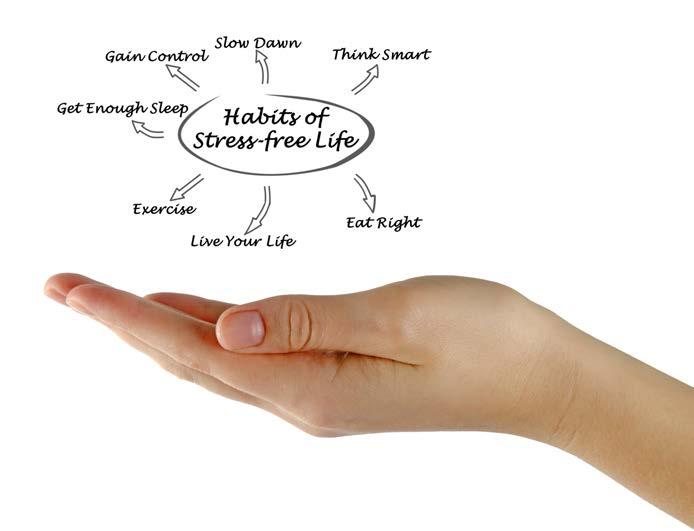
But it’s not about that.
It’s about effectively becoming more resilient to the inevitable ups and downs that life throws your way. Starting with relaxing the nervous system through breathing exercises, meditation, an antiinflammatory diet, restorative sleep, exposure to sunlight, etc.
And then it’s implementing the mindset aspect of retraining the brain. You need to train your brain out of these habitual stress responses that have become so second nature in our life that we don’t even recognize it’s happening anymore, yet it is! And it’s creating stress.
Instead, it should be about reengaging with joy.
PAGE 06

It seems that during trying times in our life, when we’re ill or have a condition like cancer, we feel like we’re not allowed to be happy or experience joy—we forget how to uplift ourselves. And it is vital to your well-being, during these experiences, to truly connect with our inner joy and bring more laughter and happiness into our lives. Which, by the way, directly boosts your immune system and gets it laser focused.
So it’s not only the idea of ridding yourself of stress, it’s about uplifting yourself emotionally as well, which has a powerful impact on the immune system that encourages healing.
Sure, most medicine interventions enable our body to become more effective at keeping well, but if we ourselves, through our mindset shifts, can make our nervous system and immune system more effective and efficient, then that means that we have paved the way for the best possible chance to fight off illnesses.
This is the optimal healing state—if we can get our bodies tuned and refined, the body will be its own best detoxifier, fighter of infection, and well-being creator.
Again, in regard to the biggest fear—death—the issue is that if you’re holding that negative energy, it becomes an attractor, it starts pulling you in that negative direction. So being able to shift your body and mindset and retrain your brain into living, having happiness, having laughter, then suddenly your body feels a reason for being here and will program itself and create changes internally to fulfill that outcome.
This happens to be something that is often overlooked in medicine—the spiritual power of acceptance and surrender. And I’m not talking about a religious belief but rather a belief in the power of love, this grandiose idea that love is a powerful force in the universe, no matter your belief system. The ability to accept what is happening for you right now.
PAGE 07

Of course, we are taught to fight cancer and illness. And in some ways, in that sense, it means to have a strong resilient mindset. Because fighting in the sense of resistance, fear, and anger is simply not going to help during this battle. That’s where the deep acceptance of what is going on and surrendering to what is going on, it’s the “I let go” moment. Trying to control the outcome will take away your power. Being present in the moment is something that you have control of here and it will increase your power and you will become more cancer resistance. Cancer is a loss of identity.
And that’s essentially what we’re talking about here, a subtle shift in mindset.
It doesn’t mean that you are throwing the towel in or that you’re not wanting to live. It means that you’re giving up to cancer, it’s accepting and then focusing on a different outcome rather than focusing on the disease itself.
Acceptance means that while it’s not okay, you are! That’s the big difference. It’s understanding that the cancer is already in your body. It’s allowing yourself to say, “I accept that it is here and I’m not going to emotionally drain myself with worry, fear and anger. Instead I will accept what is happening, and my reserved energy can be used to boost my immune system and power forward to fight this condition.”
Each time we become aware of our unconscious fear responses, the brain retraining enables us to focus on positive outcomes. This is not an overnight process, it’s repetition, commitment and self-love.
Think about it, as kids, we always resist brushing our teeth, right? But eventually you do it and you know it’s good for you. You might not know why it’s good for you, but you know it’s good. Eventually, it becomes a habit—it becomes part of who you are—and then it has its long-term effects that you don’t see right away.
In the same way, we’re shifting and training our brain away from processing the situation from a sense of fear and dread to a state of acceptance, hope, and a sense of positivity. “I’m going to do my best. I have no control over the situation, but I will do my best.”
PAGE 08
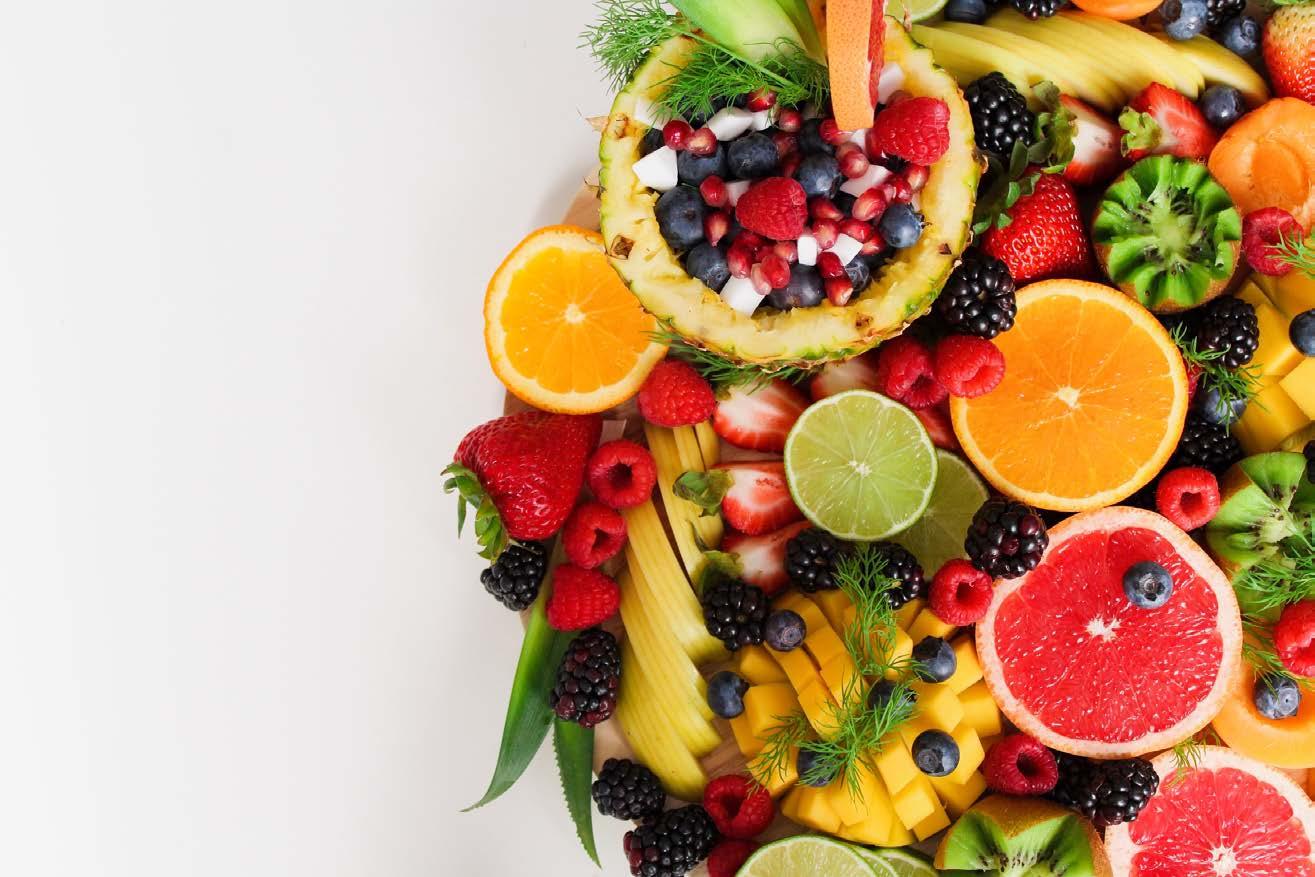
02
NUTRITION
Did you know that you can use food to battle cancer? It’s true. Far too often we tend to think that in order to be able to beat cancer, we need to use these strong pharmaceutical drugs—but what we don’t recognize is that 3 times a day we are ingesting things that can either promote or fight cancer!
Here’s an interesting fact about cancer: Everybody has it. That’s because we, as humans, are made up of upwards of 40 trillion cells. And not only do we have these 40 trillion cells, they’re also dividing all the time.
And in case you are unfamiliar with cell division - it’s the reason why we are still around tomorrow, because the cells of today kind of copy and paste themselves. They’re copying the genetic equation of a cell, if you will.
And much like copying and pasting words in a document, it seems pretty cut and dry, right? Well sure, if it was 10 words or 100 words we would likely have zero-tominimal mistakes…
But imagine if it were 40 trillion words—chances are, we are going to have some issues, we’re going to make mistakes. And the same is true for the body when it tries to copy 40 trillion cells, they can make mistakes, and these mistakes actually cause a mutation.
And mutations are what causes cancer.
PAGE 09
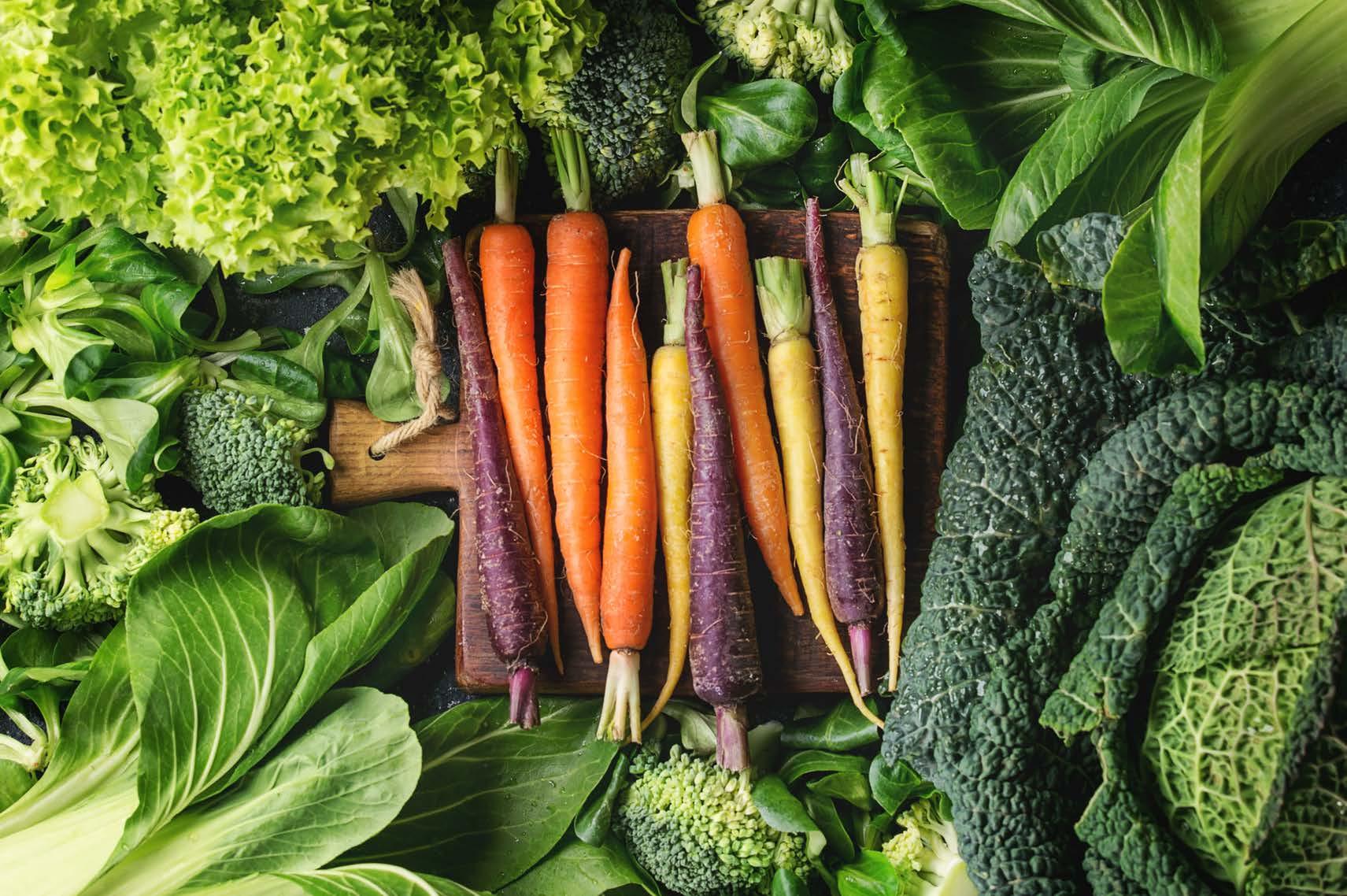
Cancer is a cell stuck in survival mode.
Cells that are not adequately nourished try to compensate until they reach a desperate point where they are left to figure out another way to survive. And nutrition is KEY to preventing this process. The body depends on us to feed the building blocks it comprises.
These building blocks come from natural, unaltered food that is close to nature. So we’re not just talking about supplying the body with vitamins and minerals in supplement form but also with complex nutrients that introduce intelligence to the cells. The intellect that will support the life force within you.
For instance, when we eat a carrot, we are not only benefiting from the specific micro and macronutrients it provides, we are also benefiting from how these specific nutrients are structured and connected.
The bonds between these nutrients and the way they are structured contain energy and intelligence which are released when we ingest them. While we may look and feel physical, it’s important to remember that we are genuinely energetic beings. We consist mainly of space and vibrational patterns.
PAGE 10
Physics has shown us that both matter and vibration are the same. We not only supply the specific building blocks for building healthy tissue, we also introduce harmonizing frequencies. And the exciting thing about fruits, vegetables, and berries is that they contain a vast array of nutrients yet to be identified and understood that are highly beneficial to your overall well-being.
When it comes to cancer, there are also many diets to choose from that can be substantially beneficial, which can be very confusing to know which one would be the most helpful for your specific type of cancer. Making it essential to come with a mindset of eliminating foods that are toxic and void of nutrients will certainly take you far on your journey.
But here’s what you need to know—food can either feed your cancer or support your body’s ability to fight it.
So go ahead and clean out your pantry and refrigerator, throw away all of the toxic, cancercausing foods, and replace them with vibrant, lifegiving food instead. Fresh, whole plant based foods, fruits and vegetables with dietary fiber, berries, nuts, seeds and legumes from every aspect of the spectrum.
Remember: Each color has unique phytonutrients, and we need them ALL for optimal health.
PAGE 11
EXERCISE

Movement is LIFE.
To be blunt, the moment we stop moving, we start dying. The body is designed in a very specific way in order to preserve resources and will actually shut down the areas not being used.
In fact, many studies show that people who exercise and keep moving increase their chance of beating cancer by more than 30%. That’s more effective than any drug on the market!
When we move we continually cleanse the fluid around our cells, which leads to the cells being bathed in a nutrient-rich, toxic-free fluid.
Much like the water of a stagnant pond versus a continually flowing river; where there is stagnation, toxins begin to build up, pathogens proliferate, and the nutritional resources are quickly used.
The same can be said for the body. And a cell living in that type of environment simply cannot remain healthy.
PAGE 12
03
Exercise is not only physical either, it also supports our emotional and mental well-being, and plays a critical role in our ability to have a successful outcome when battling cancer.
In fact, studies have shown that neurochemicals are released as we exercise, resulting in a happier, more uplifting mood. Which as you know by now, mindset and outlook is very important during your cancer journey.

So the key here is to do whatever you can to stay active and keep moving. If simply walking to the bathroom is as far as you can walk, try to make an additional trip just for the extra exercise.
All of this means that being happy supports and strengthens our immune system. And as mentioned previously, everybody has cancer cells floating around our bodies every single day, and it’s our immune system that is patrolling the body to identify and eliminate them. So we seriously need to do the most we possibly can to help keep our immune system functioning the way that it needs to…
And exercising stimulates the proliferation and activity of the various components of the immune system.
So again, do the most you can to stay as active as possible. Make that extra trip to the bathroom if that’s as far as you’re able to walk. Or if you can’t get to the bathroom, keep trying to make it there a little bit differently next time.
PAGE 13

ADDRESSING THE ROOT CAUSES
Cancer does not appear without a cause.
In every cancer situation, there is always a driver that is initiating the process. And in some cases there are multiple circumstances that are pushing the body into a survival state and creating dysfunctional genetic patterns.
In fact, cancer is only a symptom; you will only cover up the expression of the symptom momentarily when you are focusing on tumor reduction.
After the tumor is removed through surgery, radiation, or chemotherapy, if the root causes are left unaddressed, the chances of tumors appearing in other locations is extremely high.
PAGE 14
04
When it comes to addressing the root causes, it’s crucial to understand that they all add up to a level where the body is incapable of compensating any longer, resulting in cancer.
Imagine each and every factor being added to a bucket. The body is only able to compensate until the bucket becomes so full that it begins to overflow. But as you begin investigating what may be behind your cancer, each factor that is addressed begins to reduce the level in the bucket, eventually getting to the point where your body is able to reestablish healthy patterns.
Potential Factors to Consider When Dealing With Cancer:
Toxin Buildup (such as heavy metals and chemicals)
Pathogens (mold, parasites, fungus, bacteria, and viruses)
Trauma
And nutritional deficiencies
These factors are also considered epigenetic factors.
Genetics also plays a minor role as genes can become turned on or off depending on epigenetic factors.

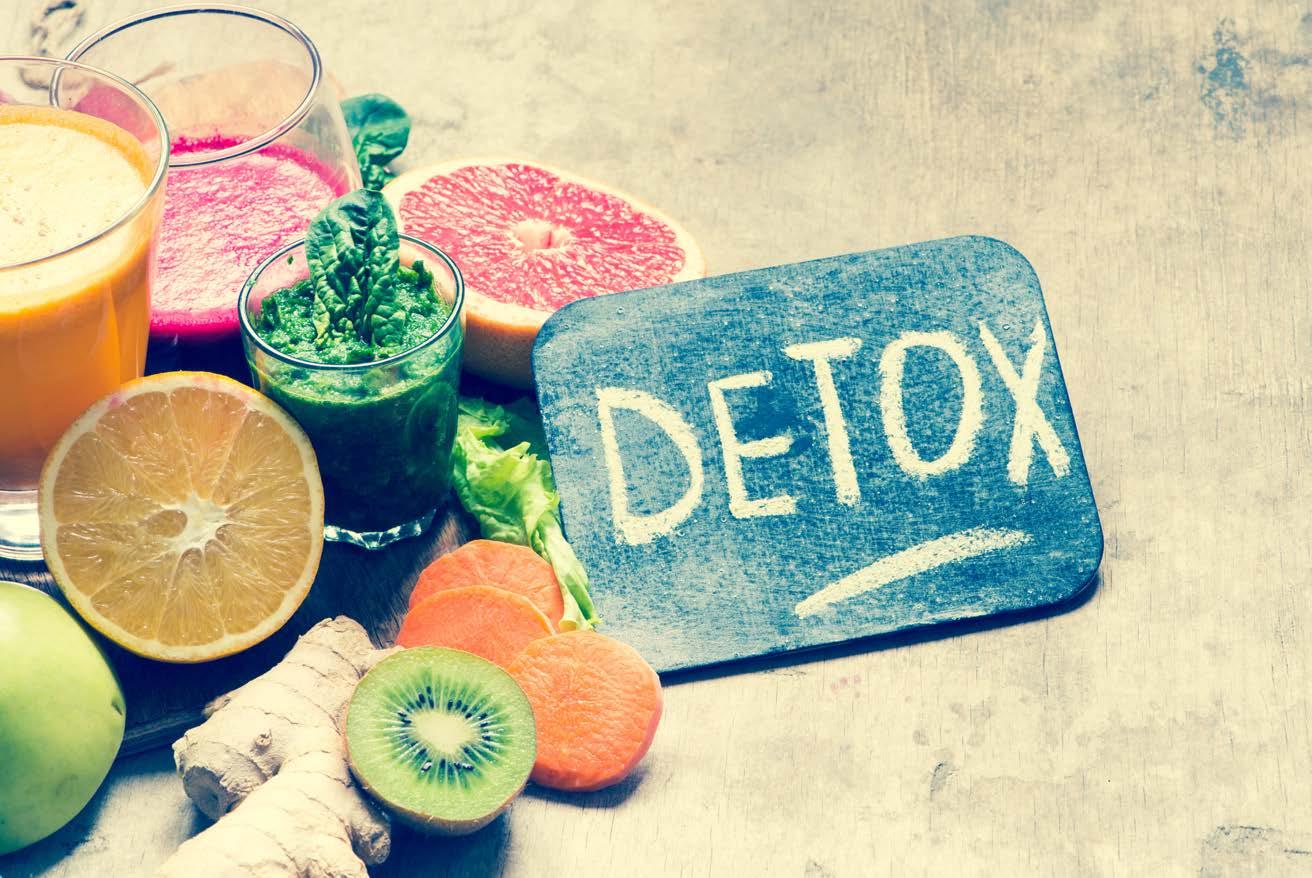
05
DETOXIFICATION
There is a reason that we have four pathways of elimination and just one way for the introduction of food substances.
Detoxification is vital for the well-being of the body.
Our cells, which make up all of our tissues, simply cannot thrive in an environment riddled with toxins. Much like a fish depends on quality water in a fishbowl, the cells will die if the fluid surrounding them is harmful and unable to sustain life.
Proper detoxification needs to consider that the pathways of elimination are open, these pathways include the bowel, kidney, skin, and lungs.
There seems to be a bit of a gray area when we look at science and medicine, often we tend to think that there’s a disease, so there is a treatment—there is one cure. For example, with diabetes you just assume “I’ll be on insulin, so I’ll be fine, right?” But it’s not really the case.
With cancer, in particular, there are multiple factors that should be addressed. One of these is detox. It’s getting rid of everything inside of the tumor cell that helped cause the tumor cell to begin with.
PAGE 16

We are bombarded by both emotional and physical toxins every single day. Everywhere from stress raising your Cortisol levels and lowering your immune system to the harmful toxins contaminating our water and environment, and in our foods — things like heavy metals, chemicals, pesticides, and more.
All of these things are in the tumor, and they’re altering the frequencies inside of the tumor as well as altering the structured water in tumors. Structured water is a hexagonal form of water, it’s the purest form of water there is.
So these tumors are acting as these survival mechanisms where we gather all the toxins and pathogens, making clearing out these toxins the key to dissolving tumors to keep that tumor from fulfilling that role any longer.
And if you don’t get the heavy metals, chemicals, pathogens, viruses, etc. out of those tumors, they’re either going to come back—or you’ll never be able to get rid of that tumor at all. Which is why starting a detox before simply trying to dissolve the tumor is the wisest thing to do.
PAGE 17
Now, when it comes to a proper, safe detox, it is essential to consider the toxins being addressed in a detoxification program.
Think of it like the freeway in a metropolitan area during rush hour and all exit ramps are blocked off. The result = total gridlock.
This is how vital the eliminatory pathways are. When they are open and flowing appropriately, we can accelerate the liver’s ability to process toxins, as well as lymphatic drainage and intracellular detoxification.
Signs that the pathways are not open include:
Constipation
Eczema or other skin issues
Asthma or other respiratory concerns
And urine that is almost completely clear, even when drinking only a modest amount of water
Again, it is crucial to consider the toxins being addressed in a detoxification program. If it is something like lead or mercury, include the appropriate binder and detoxification agent that can handle these heavy metals. Whereas if it is something like glyphosate, another detoxifying agent would be more suitable.
PAGE 18
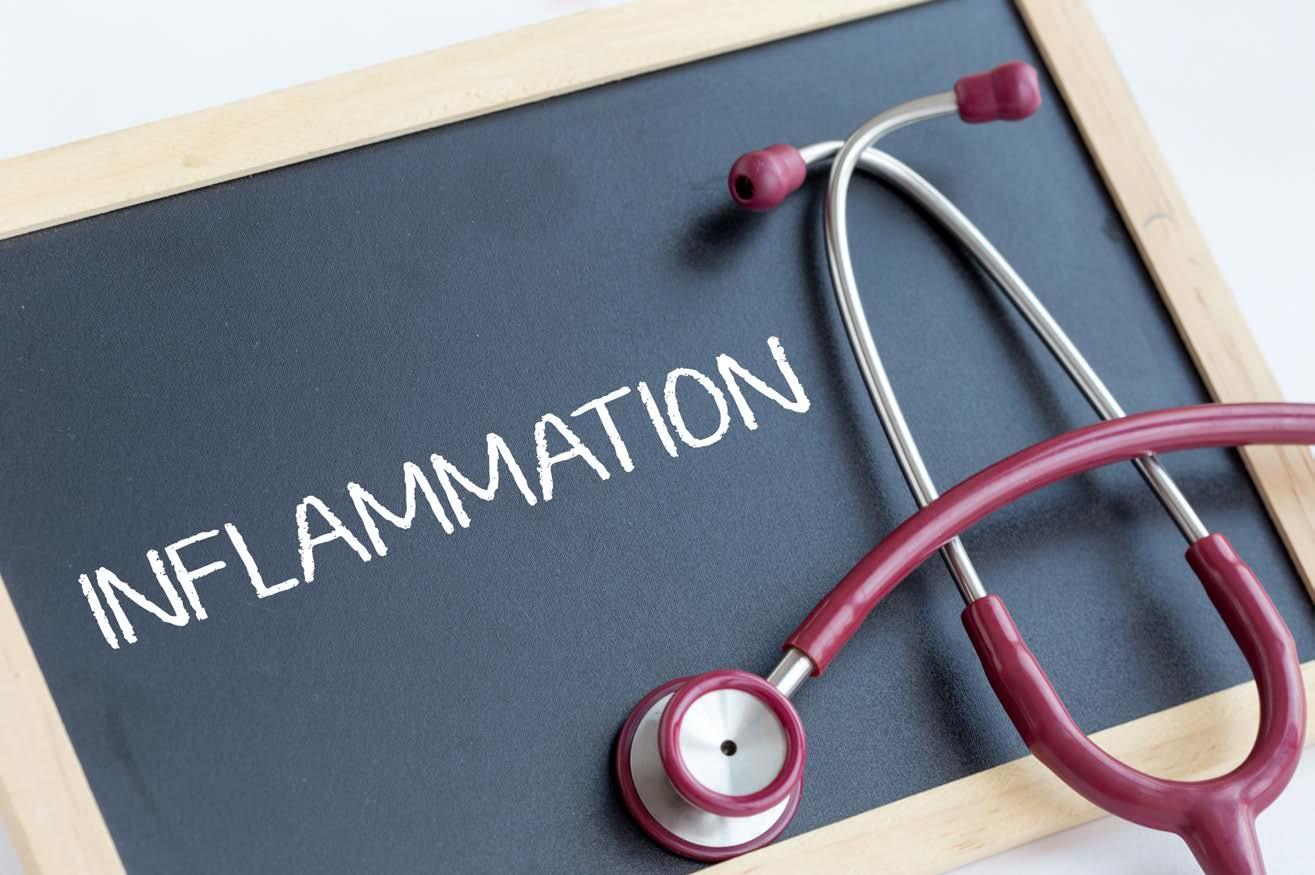
INFLAMMATION
Cancer is an inflammatory disease.
And truthfully, no cancer can exist without inflammation occurring first. Cancer and the surrounding stromal and inflammatory cells combine efforts to create an inflammatory tumor environment.
Cancer-causing inflammation blocks the immune system's ability to kill cancer and supports tumor-promoting signals.
PAGE 19
06
So what is inflammation?
Inflammation is an immune response that happens when something unwanted in the body is detected. This can be a certain food, pathogen, toxin, or even emotion. Chronic inflammation in any specific body area happens because the inflammatory factor persists, or the body simply does not have the resources necessary to heal the area thoroughly.
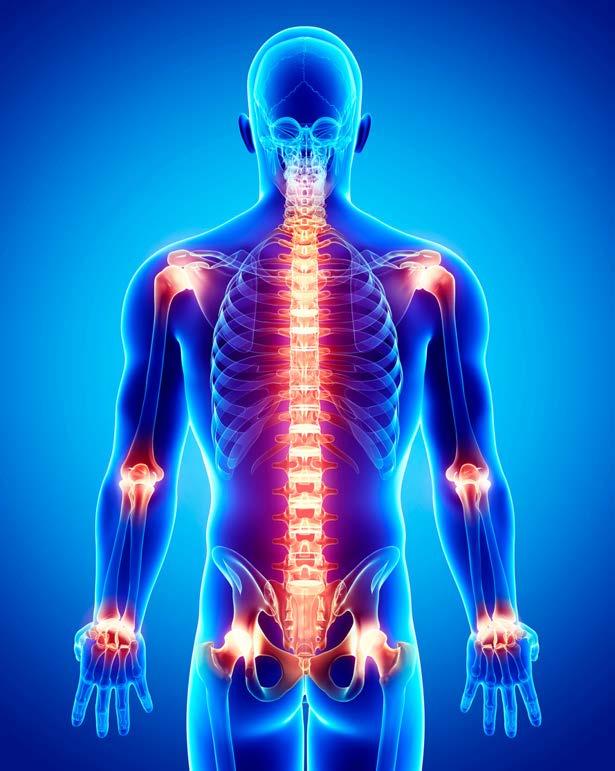
Here’s the thing, chronic inflammation has been linked to various steps in tumor initiation, including cellular transformation, promotion, survival, proliferation, invasion, angiogenesis, and metastasis.
In order to be truly successful after being diagnosed with cancer, you must identify and eliminate inflammatory factors, while also incorporating antiinflammatory agents.
When you think about it, cancer can be considered a wound that never heals or, in other words, a chronic inflammatory response that is left unaddressed.
But don’t lose hope, there are many tests that can help evaluate the level of inflammation in the body and identify the triggers that are causing the immune system to promote inflammation.
PAGE 20

GUT HEALTH
Hippocrates said it best, “All disease begins in the gut.”
And it’s true - health and disease genuinely start in the gut.
In fact, 80 - 90% of your immune system exists along the gut and more than 30 different neurotransmitters are produced in the gut.
And because of the 100 million neurons in the gut, the gut is frequently referred to as the “second brain”. However, it could be argued that the gut should even be considered as the first brain, namely because 95% of our body’s serotonin is produced in the gut. (Serotonin is known as our happy neurochemical.)
Not to mention the direct connection between the gut and the brain through the vagus nerve!
Additionally, more and more information continues to come out about the incredible health benefits of beneficial bacteria supporting digestion and overall absorption of essential nutrients. And there are hundreds of beneficial bacteria residing in the gut, each with thousands of subspecies.
07 PAGE 21
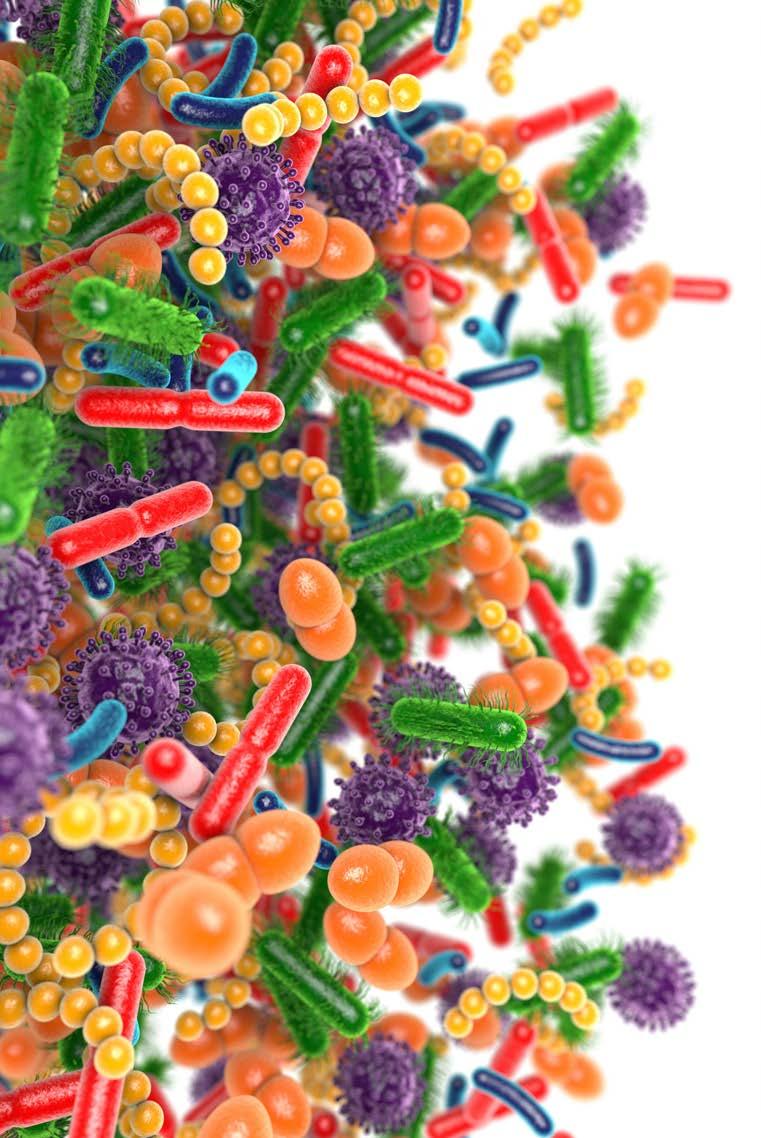
Let’s face it, the complexity of the functionality of our gut microbiome is absolutely astounding!
One of the most important functions of the gut is breaking down food substances that are required for proper cellular function, and when this function is disturbed, the rest of the body suffers.
Food that doesn’t get properly digested in the gut starts to ferment, creating disease-causing byproducts, endotoxins, which over time, will trigger inflammation along the gut lining, and the result is that it becomes leaky.
When this happens, it initiates a vicious cycle of dysbiosis where poor digestion triggers undigested food to irritate the intestinal lining, causing inflammation and histamine release which leads to gaps forming between the mucosal cells of the gut lining.
As a result, the absorption of digested nutrients becomes impaired, allowing larger, undigested particles to pass through the gut lining and into the bloodstream.
Then the immune system begins to react to these food particles which leads to more inflammation and histamine production.
PAGE 22
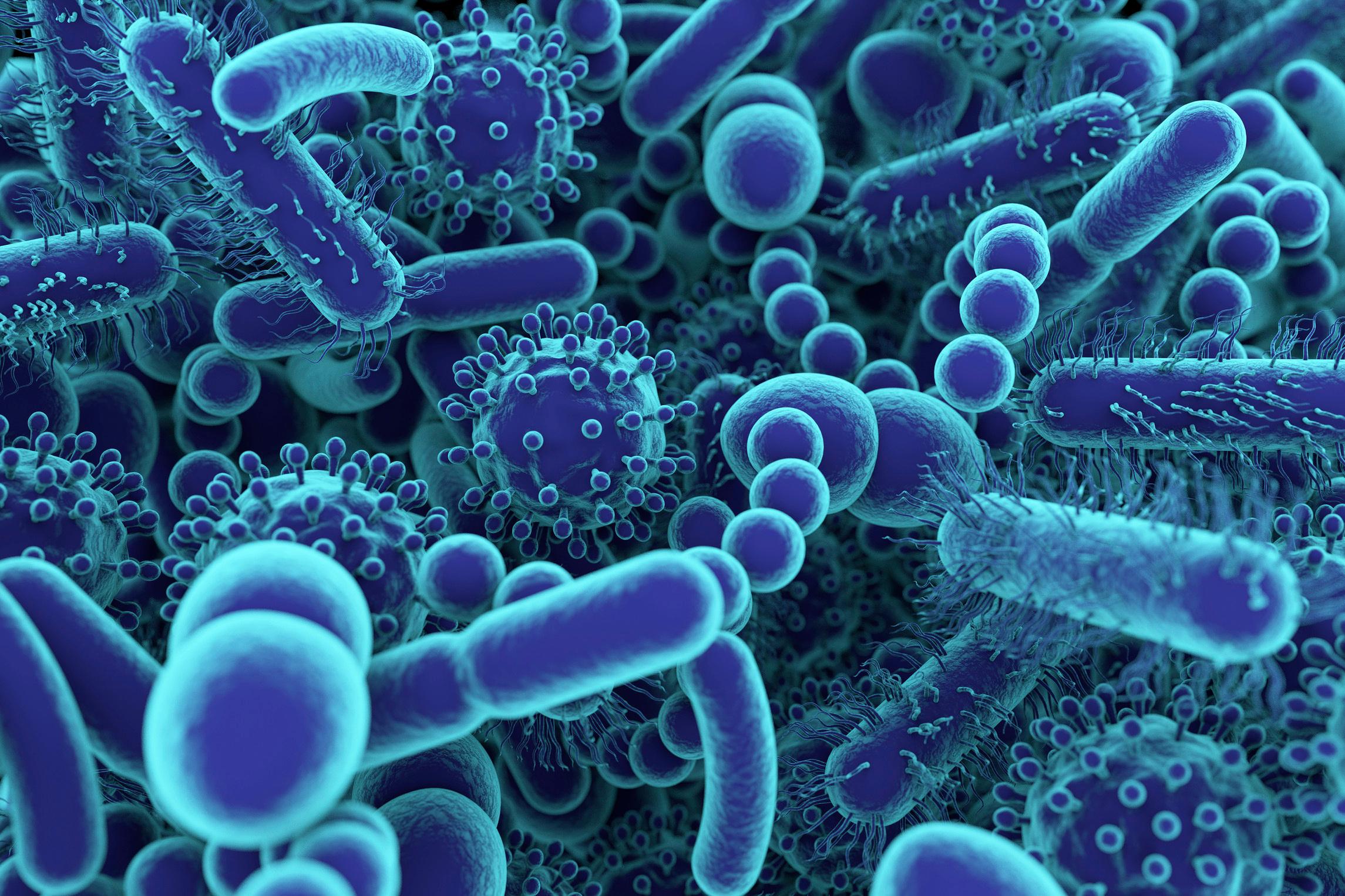
To top it off, these undigested food particles actually nourish the harmful bacteria and yeast in the intestines, and as a result, these disease-causing pathogens will start to thrive and spread throughout the intestinal tract. This overgrowth creates a barrier along the intestinal lining, preventing appropriate absorption.
The metabolic toxins of these pathogens cause even more inflammation along the gut lining which allows even more food to pass into the bloodstream, and ultimately causes even more stress on the immune system.
Over time, the toxins released from these unfriendly gut pathogens will overload the liver and reduce its ability to detoxify chemicals and heavy metals that we are exposed to on a daily basis.
So as you can see, the health of the gut is ground zero for:
The well-being of our mind
Energy production within our cells
Availability of building materials to repair tissue
Control of inflammation throughout the entire body
Ability to detoxify successfully
The health and efficacy of our immune system
Therefore, while navigating through your cancer journey, the gut should most certainly be a high priority.
And keep in mind that chemotherapy is known for destroying the gut, thus impacting all of the areas mentioned above.
PAGE #
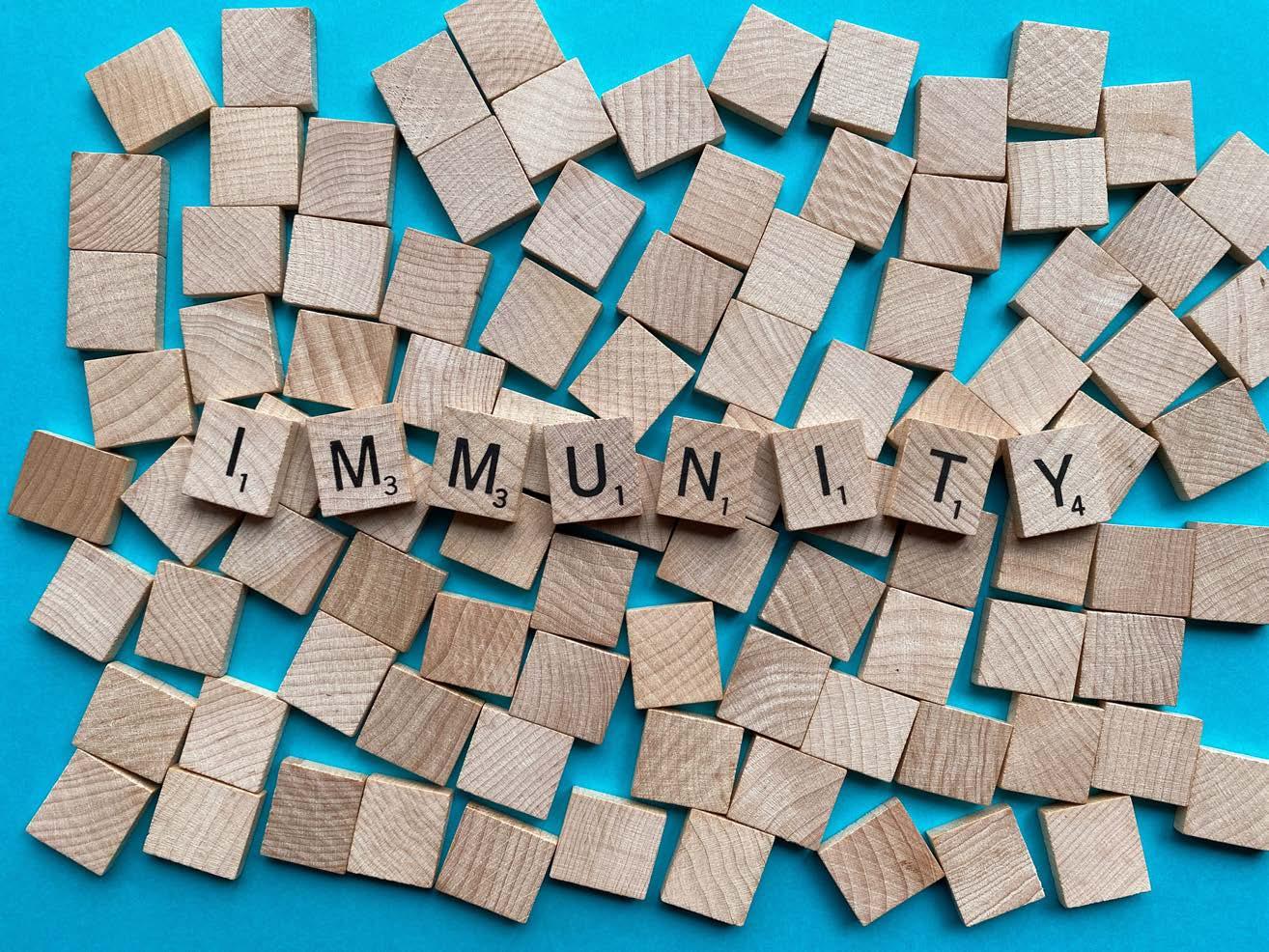
THE IMMUNE SYSTEM
Your immune system is your body’s army, continuously fighting off pathogens and cancer, constantly surveying the body for abnormal cells— and when it encounters them, it immediately goes into attack and destroy mode.
It is a well-known fact that surgery, radiation, and chemotherapy will never be able to get rid of cancer entirely… It is the immune system’s responsibility to finish the elimination of any remaining cancer cells.
But herein lies the issue, chemotherapy is very detrimental to the immune system. This puts an individual in an exceptionally vulnerable place, allowing the remaining cancer to go unchecked due to a crippled immune system. Another thing to consider is, surgery in itself is very immunosuppressive. This can also enable the cancer to metastasize.
A leading Naturopathic Doctor, who has worked with cancer patients for over three decades, mentioned that surgery actually increases the likelihood of metastasis by 40%.
So, as you can see, it is absolutely essential to utilize immune boosting strategies both pre-and post-surgery and throughout any type of chemotherapy.
PAGE 24
08
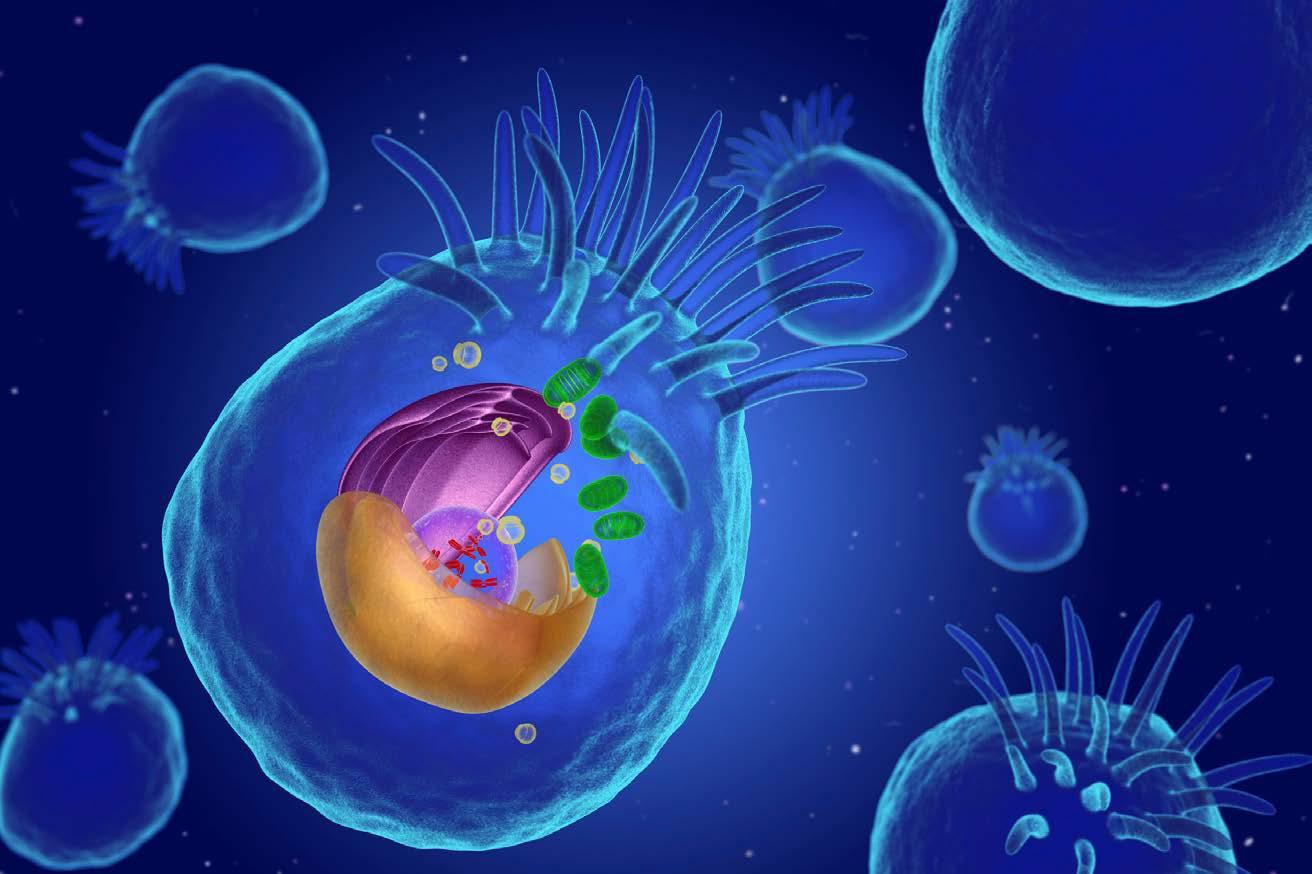
MITOCHONDRIA
Cancer is a metabolic disease.
Because it is a dysfunction of how energy is produced within the cell. At the core of the cellular energy production is the mitochondria, the cell’s energy factory, where fuels such as sugars, fats, and protein amino acids are burned with oxygen in order to make energy.
The mitochondria not only control genetic repair, they also hold the cell death switch.
Adults have upwards of 10 trillion mitochondria, comprising up to 10% of body weight and generating the entire body weight of energy molecules (ATP) daily.
09 PAGE 25
When a cell becomes too dysfunctional, the cell death switch is triggered and the cell gets destroyed. However, a cancer cell bypasses that mechanism by alternately producing energy through fermentation.
And this is a very inefficient way to generate energy, it is a survival mechanism being forced upon the cell when the mitochondria become dysfunctional and the cell is hypoxic, lacking oxygen.
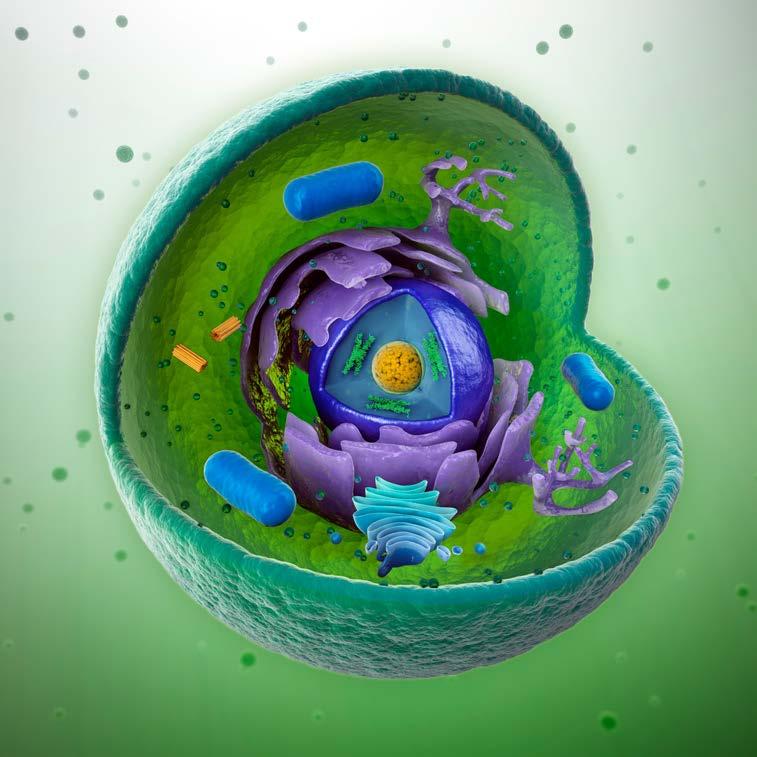
Although fermentation is an inefficient way to produce energy, the cancer cell itself actually prefers its benefits.
This fermentation process generates chemicals, such as lactic acid, that support:
The growth of a tumor
Metastasis
Conversion of healthy cells to cancerous in the tumor’s microenvironment
And the development of blood vessels to support the nutritional need of cancer
Including strategies to activate the mitochondria becomes critical in eliminating cancerous cells successfully as it will activate apoptosis, the death cell switch.
Shifting the energy production away from fermentation will reduce the production of lactic acid…
Additionally, healthy functioning mitochondria will improve genetic repair and reduce mutations that can drive the cell to become cancerous.
PAGE 26
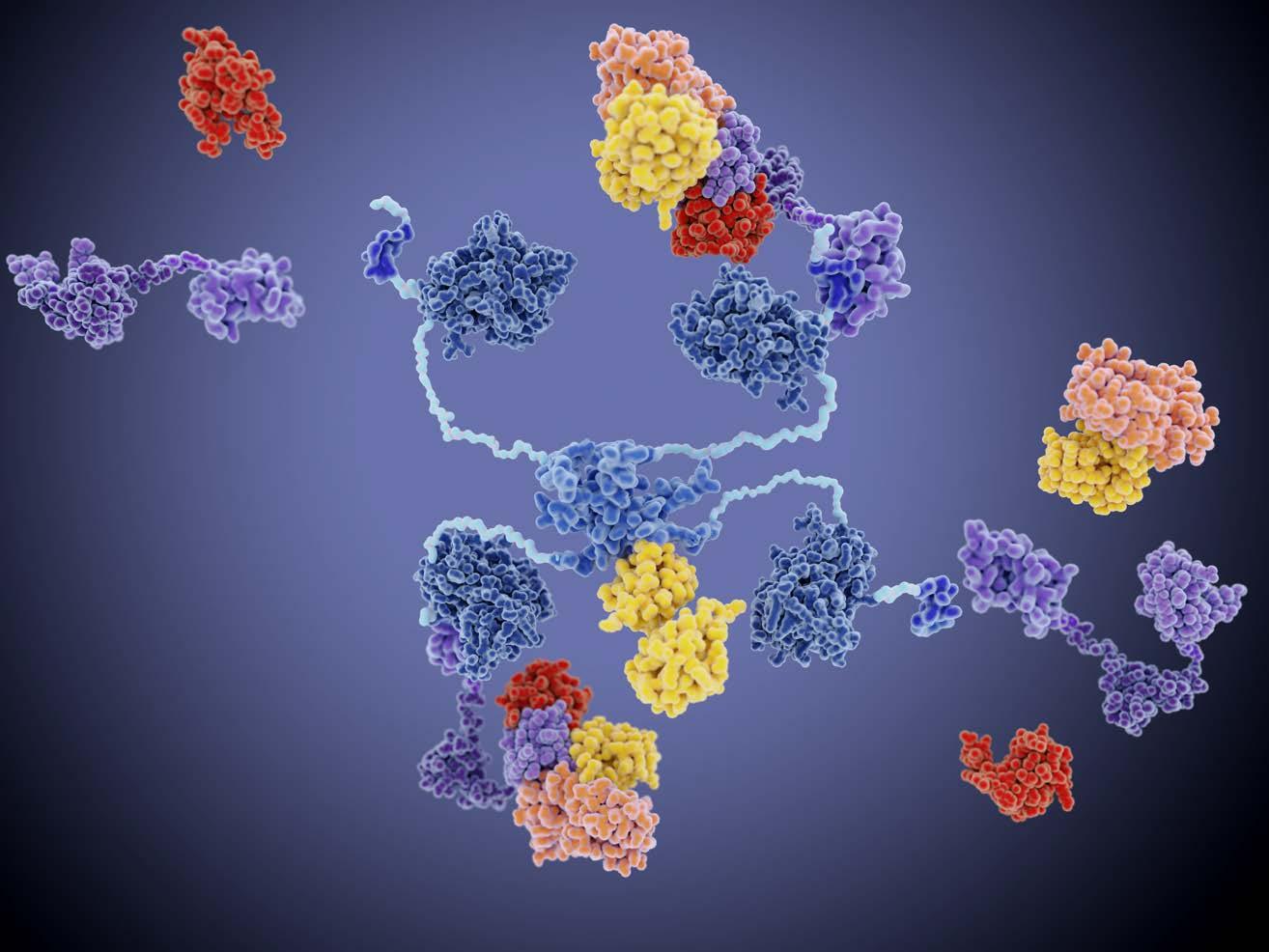
CANCER DRIVERS
The way that cancer is able to survive is dependent on certain cancer drivers, oncogenes, which are necessary for supporting the function that allows cancer to thrive. And there are multiple genes that actually function as cancer drivers…
For instance, triple-negative breast cancer will have different drivers than pancreatic cancer. This is because several genes have driver roles in two or more cancer types.
The genetic mutation associated with most types of cancer is P53, followed by KRAS and PTEN.
P53 is considered the guardian of the DNA because it assesses for DNA damage and attempts to repair it, and when it is unable to repair it, it initiates cell suicide.
The good news is, there are effective strategies to minimize the impact of these cancer driver genes and reduce the level of cancer-causing mutations.
PAGE 27
10
Additional factors that need to be addressed are growth factors such as IGF1 along with the factors promoting the production of blood vessels to the tumor, such as VEGF.
Because cancer is so very inefficient in using nutritional resources, shutting down the drivers that are supporting the transport of nutrients to cancer, such as VEGF, becomes an incredibly powerful strategy to starve and kill cancer.
Other factors that are frequently upregulated in cancer include NFkB, cMYC oncogene, Bcl-2, mTOR, and PI3K/Akt signaling pathway.
As you evaluate what type of cancer and the associated cancer driver genes, you can then begin to decipher which nutritional strategies should be implemented to block the effect of these drivers.
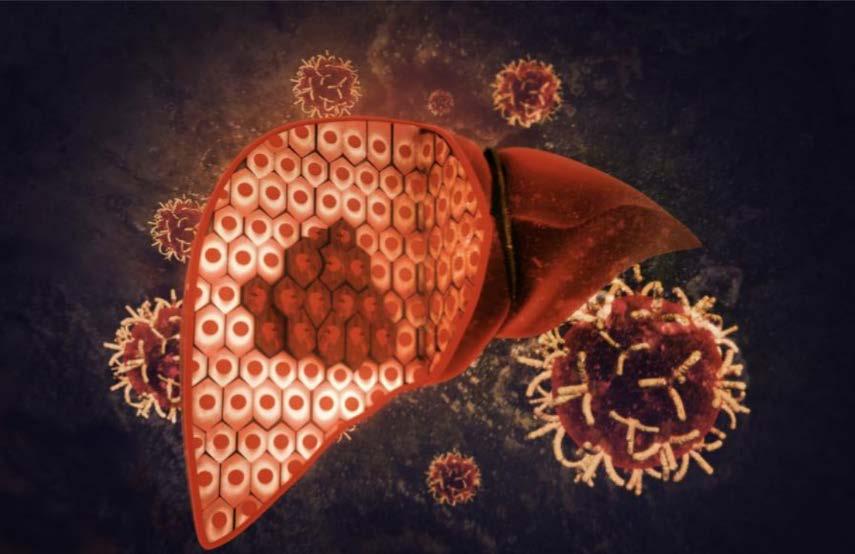
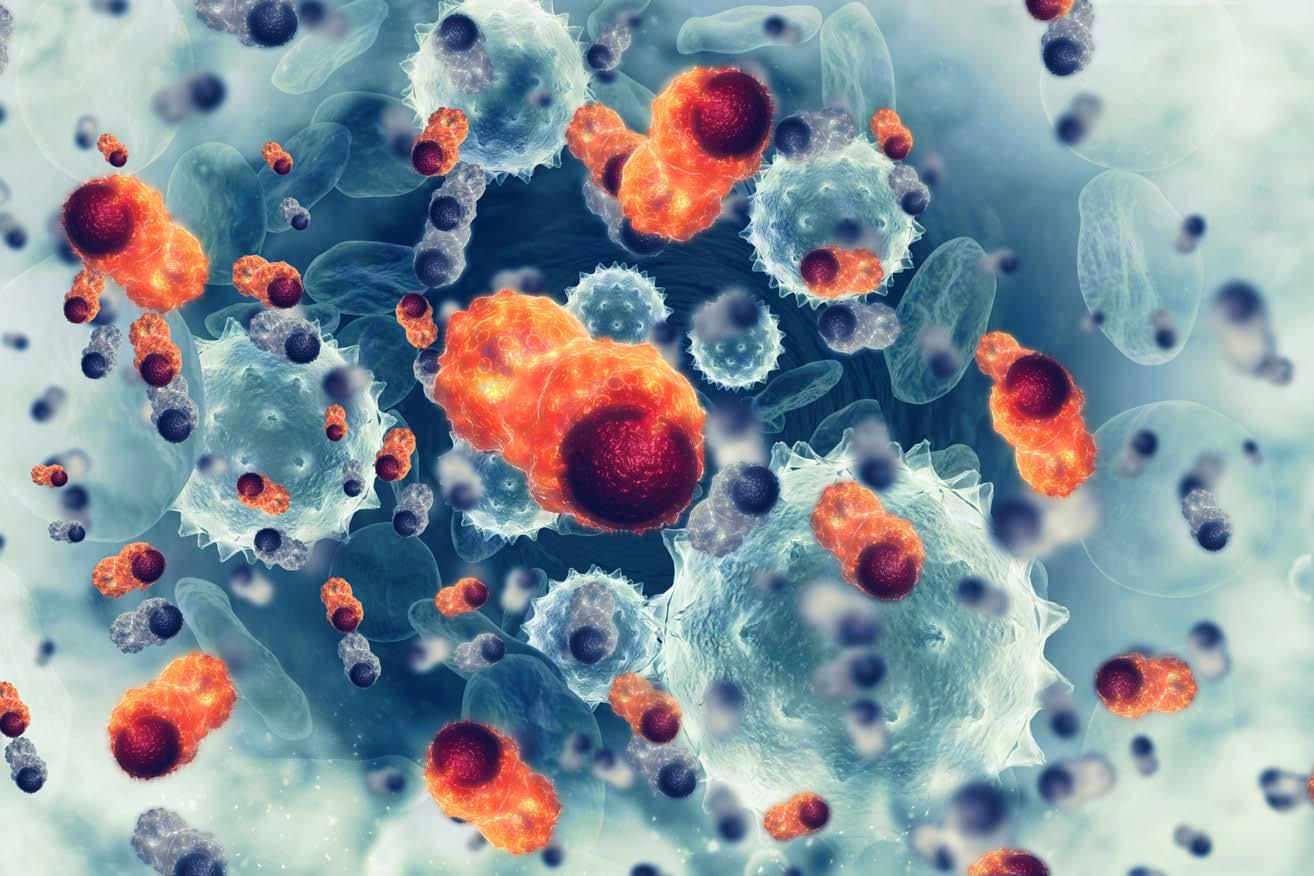
CANCER STEM CELLS
Cancer stem cells (CSCc) are a small subpopulation of self-renewing malignant and oncogenic cells that drive tumor initiation and progression. CSCs play pivotal roles in tumor initiation, progression, cell death resistance, therapy resistance, and tumor recurrence following treatment and remission.
While traditional cancer strategies, such as chemo and radiation therapy, are quite effective in shrinking tumors, they are actually very ineffective in impacting cancer stem cells.
The cancer stem cells in tumors are not only therapy-resistant but can actually be stimulated by chemo and radiation.
In fact, cancer may increase aggression following therapeutic intervention due to this subpopulation of cancer stem cells with resistance properties, which are subsequently capable of re-initiating the tumor, causing tumor relapse.
PAGE 29
11
Cancer stem cells are able to move freely around the body, and a cluster of a hundred cancer stem cells are capable of forming a new tumor in a new location. They are also capable of renewing themselves.
Not only that but they are 100 times more aggressive than normal cancer cells.
Thankfully, many natural agents show great promise in modulating these cancer stem cells. The key being to keep them silent while clearing our abnormal cancer growth throughout the body.
For example, suppose a person chooses to undergo traditional cancer care. In that particular case, it is important to include natural therapies to reduce the activation of the cancer stem cells to minimize the risk of cancer becoming more aggressive after the conclusion of cancer therapy.
PAGE 30
We truly hope this guide has helped you understand the importance of cancer program compliance and what your cancer program needs to address.
If you have any questions or want help with creating or improving your cancer program, please don’t hesitate to contact us.
We offer free 15-minute consultations with Dr. Karlfeldt so that you can get started on the right foot.
To schedule a free 15-minute cancer consultation with Dr. Karlfeldt, call 208-338-8902 or email us at info@thekarlfeldtcenter.com
I look forward to being part of your cancer solution.
Dr. Michael Karlfeldt www.thekarlfeldtcenter.com

 DR. MICHAEL KARLFELDT
DR. MICHAEL KARLFELDT



























